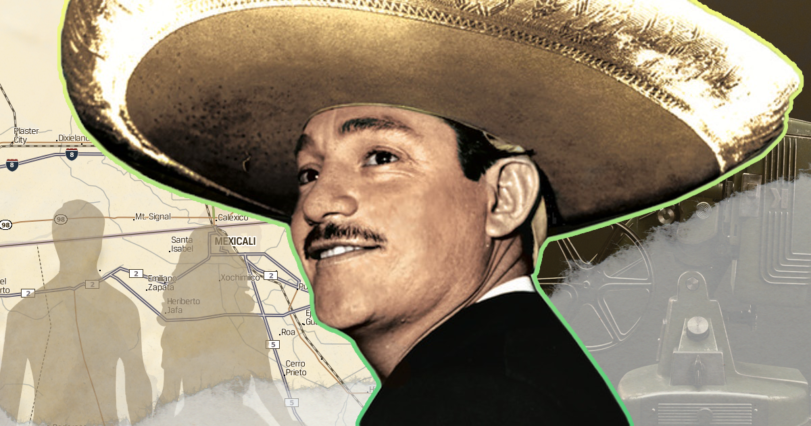
In the spring of 2016, I was in my third year of university. One of my assignments for my film class was to interview someone who had lived through a past film era. I immediately thought of mi Abuela. Her love language was stories — both watching and telling them. She was the type of person who consumed movies and telenovelas as if they were a feast. Abuela had a TV in the kitchen and a one in the living room (both which were only steps away from each other) so she would never miss a single beat of a show. When people came to visit, she would turn on the TV — laughing and crying at the screen was so much better when you had company.
Four springs later, she would slip away from this world. Grief is weird– especially during a pandemic. As I was looking back at old files, I found this interview. It felt as if she was placing me in front of her TV again and with a sly wink, whispering, farandula and chisme forever, reina.
****
In the 1940’s and 50’s, Abuela was a bright eyed young woman living in the border town of Mexicali, Baja California, Mexico. The Golden Age of Mexican Cinema was in full throttle. Like many other Mexicans across the nation, Abuela rushed to see movies from her favorite actors like Pedro Infante, Blanca Estela Pavón and Antonio Aguilar. As the capital city, Mexicali’s movie theatres were easily accessible, and sometimes only a bus ride away. Because of the shared border with the US, cinemas in Mexicali were stylized like its neighbors up north, with dark cool rooms, large screens, and popcorn.
The movie theatre became a place where Abuela could “be refreshed for at least 2 hours.” In the summer, daily temperatures in Mexicali often pass 105° F and without the money for an air conditioning unit, paying “1 peso and 25 cents to see a film” would be money well spent.
In Mexicali, American produced films were not commonly shown, but when they did — they were marketed spectacularly. Abuela laughed while remembering how the American film Trapeze (Carol Reed, 1956) was promoted throughout the city. A man dressed as a trapeze artist and armed with a megaphone traveled up and down the streets, “all while doing acrobatic tricks in the air.”
During this time, Mexico experienced a rise in film that would later be considered its classical period. This boom came as a result of the Good Neighbor Policy and World War II, when the US began to put money into the Mexican film industry. Popular themes such as the melodrama, with focuses on familial dynamics and relationships, filled seats nationwide. The melodrama was Abuela’s favorite genre and she remembered rushing to the theatre to see Ismael Rodriguez’s Pepe El Toro (1953), the last installment in the wildly popular Pepe El Toro trilogy.
“Those were the type of movies that left a lasting impact and message. They were great and we liked how they were made. The drama and the stories were veridicas, so we were drawn to them because they left us with a lasting message.”
The romanticized nature of some of the films of the Golden Age led the nation’s youth to use the same techniques as seen on screen used to get the attention of somebody. Musical films, in the style of the corrido (a song that is part ballad, part making a statement about a social issue) evoked a sense of “ Mexicanidad” or a common shared culture with representations of folk and regional cultures. One of Abuela’s favorites was Ernesto Cortazar’s Juan Charrasqueado ( 1948) .
“This character was a womanizer so it was scandalous! He was a bad boy, but the girls watching the film still fell in love with him. Through song, he would seduce the girl.”
It was common for young men to attract a girl’s attention the same way their favorite movie character did in Mexicali. “The films were very romantic. That’s how people would woo others.” Remembering this was a soft spot for her because my grandfather, mi Abuelo, did the same, “He made me fall in love with him with Javier Solis songs, inspired from the way men would court women in film.”
***
In their later years together, my grandparents would stream all of their old favorites online. When I think of mi Abuela, I think of her leaning on her elbows, remote control in her hand, with a look of awe at whatever was on the screen (and the smell of something burning on the stove as a result). I have always loved film, but now every time that I watch something – it feels like it is an act of memorial and remembrance.
Loved this. Makes me think of my grandma watching her novelas and Caso Cerrado shows all day. My condolences on your abuela, I’m sure she would be proud of you spreading the word and knowledge of Latinx cultura.